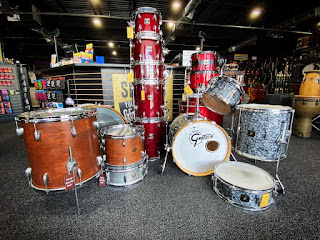Why Is Consistency So Important When Learning to Play a Musical Instrument?
You’ll often hear drum, piano, and guitar instructors
speak about the importance of consistency while playing and practicing. Whether
you’re a newbie taking beginners’ lessons, or you’ve already mastered the
basics, they will tell you that there’s no substitute for practice and constant
playing, and that the alternative is to remain idle or even lose some of your
abilities over a longer period of time.
The fact is that the theory associated with playing a
musical instrument is relatively simple. You typically have seven notes to
master, along with a few chords, scales, tempos and various other musical
concepts that are used for playing and reading your sheet music. However, the practice
part can be very tedious.
Because the movements required to get the note combinations
just right on an instrument like the piano, guitar, flute or even a basic
harmonica, can be quite complex and highly specific, our muscle memory can have
a very hard time retaining them. This is why, when you’re starting out with an
instrument, you might have the movement written into your brain, but your hand
or fingers seem to have a mind of their own.
With constant practice, you can train your muscle memory as
you would train a dog new tricks. Through your practice, all your movements
will become more and more refined, until you can hit the right notes in the
right order and at the right speed to make the song sound flawless. However,
that performance can only be achieved through consistency and practice.
If you are interested in learning a new instrument and ready to dedicate time to practice,
many people buy used musical instruments online that offer affordable and quality musical inventory.



